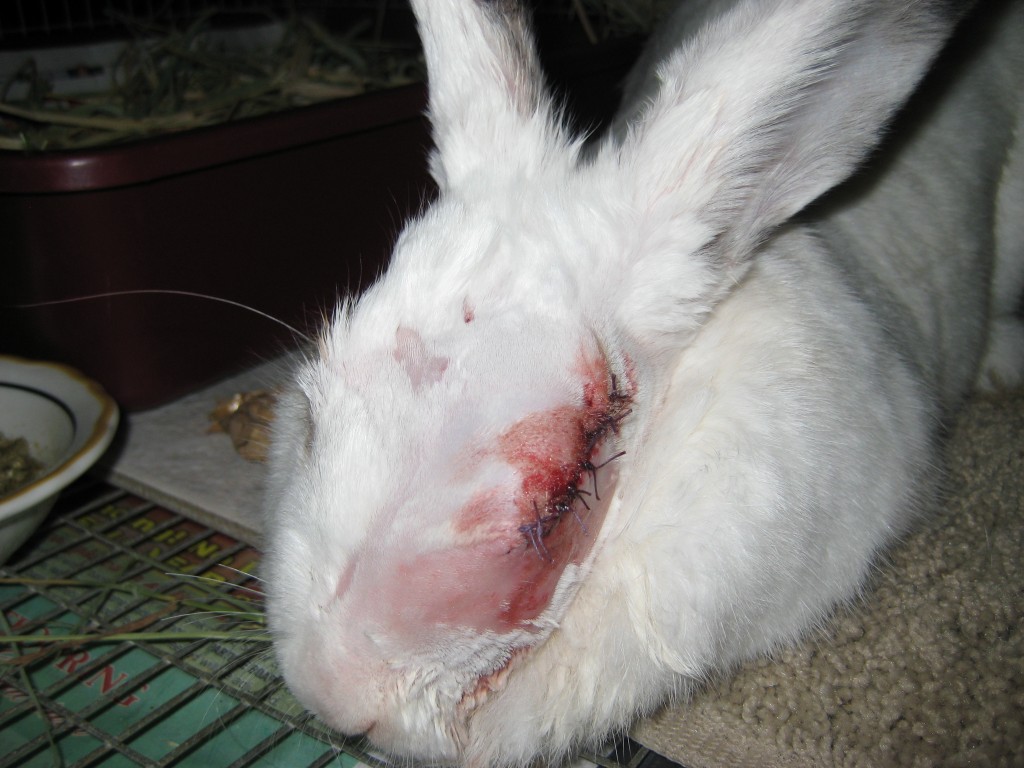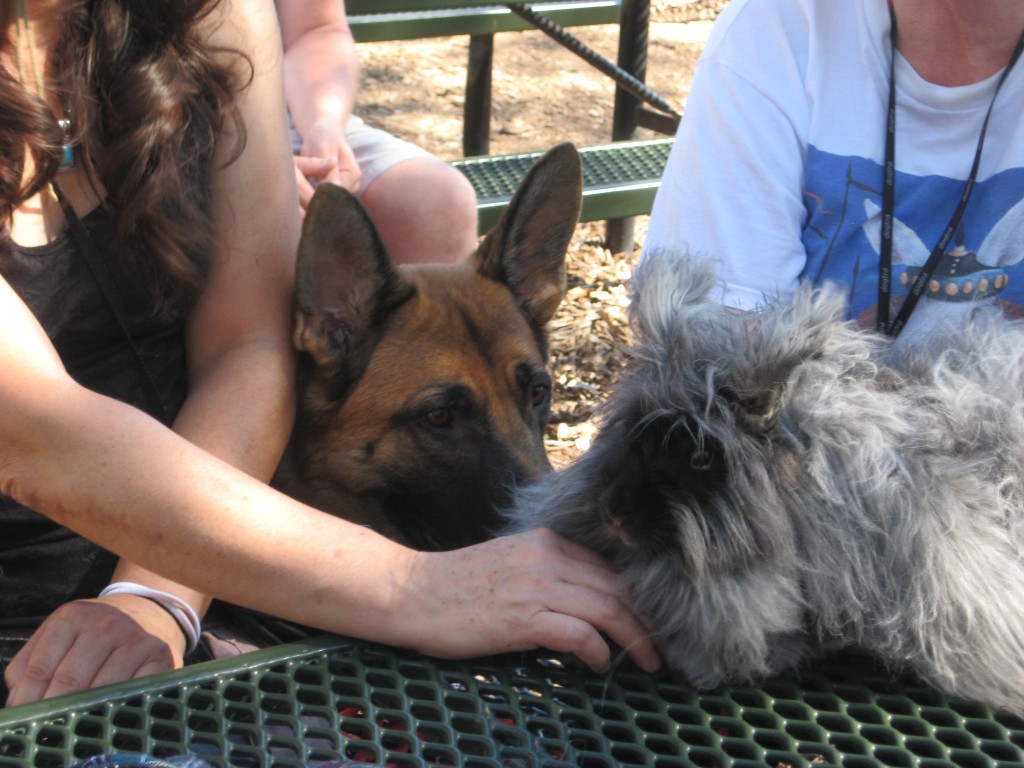It is a good morning that I don’t wake up to one or two panicked emails from bunny owners who have rabbits who are dying and they are seeking advice from me. Don’t get me wrong, I want to help people all I can, especially rabbits in dire need. It is just very hard to not think about some poor defenseless bunny at the mercy of someone thousands of miles away who may or may not take my advice.
Most often, I have to tell them to simply find and take their bunny to a rabbit specialist vet. Almost always, they have never visited a vet before and most certainly not a rabbit specialist. I know that many areas are not blessed with a plethora of vets who are trained to work with rabbits, but part of having a pet bunny is at least knowing where the nearest vet is located, should you ever need to see him in an emergency. When minutes count, do you want to spend a few hours trying to found out where it is you will have to go with your bunny.
The harsh reality is that every day a pet bunny somewhere gets in trouble and needs help from his human. Often, whether or not the little guy survives depends on how long before the owner notices that something is wrong and how he reacts. Our reaction will usually depend on the knowledge that we have about bunnies and the resources available at the time. Many rabbit vets do not work on weekends and so what do you do if your bunny is in distress late Saturday night? I have had this happen several times, myself.
If you are reading this blog, then you obviously have the internet available and that can be a wonderful thing. There is a wealth of information on tap there, but beware of some advice you may find. Finding a factoid posted more than once does not mean that much, since often the same misinformation has been copied and pasted from one website to another. Still, most of the time you will be getting good information, which in an emergency can be better than nothing.
Understanding that being desperate for some answers about what to do in an emergency leads to me receiving dozens of letters each week from distressed bunny lovers about their pets. Often, I can respond that most likely there is nothing to worry about, such as the myriad of emails I get from people the first time their bunny does some bright red or orange pee (I probably get that one once a week… haha). Other times I lose sleep worrying about the fate of some bunny whom I am sure was barely hanging on when their owner wrote me. With the popularity of Facebook amongst bunny lovers these days, I get even more amazing communications.
It is a good thing, since it means that we are slowly getting our message of rabbit education out there to the public, but it is also a double edged sword. When you put yourself out there like I do, you get lots of the horrible “dead bunny” stories, too. It is hard not to think about some of them and usually after my reply, I rarely hear back from the person about what happened. When I do, it is never good news, so it is one of those “damned if you do and damned if you don’t” situations.
Really, the only way that hundreds of rabbits are not going to continue to die every day from the “stupid owner syndrome” (don’t worry, we have all had it) is to educate the masses. When it becomes common knowledge how to properly keep a pet rabbit, most of these saddening emails will stop. Stories like my neighbor’s dog just ate my rabbit to my rabbit stopped eating two days ago are virtually all from lack of common knowledge. With rabbits, a little prevention goes a long way to avoiding these kind of sad stories.
So go ahead and please do write me or post in my blog. I will do what I can to help you and possibly even help you save your bunny, but please don’t wait until it is too late and your bunny is on death’s doorstep to do so. I am here to help you.
The Bunny Guy


